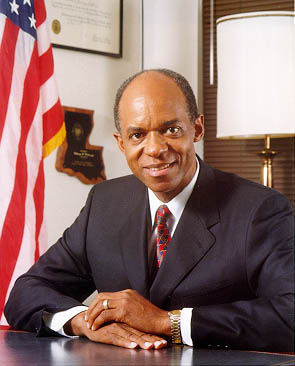Judge T.S. Ellis’s lenient sentence of Paul Manafort came as a jolt. It should not have. I know better. So do you.
I am an ordained minister of the gospel who has spent lots of time in courtrooms. It was a short step from pulpits of privilege to a criminal defense law firm founded by the American Indian Movement and African-American civil rights center. I left the pulpit, but the faith that points to an essential human dignity went with me. Irrespective of the seriousness of the charges and crimes, I saw, or tried to see, a dignity and worth in defendants no court sentence can take away.
Legal Rights Center clients convicted of serious crimes were sentenced to the state prisons, about as far from the comforts of federal prisons as their neighborhoods were from gated communities and country clubs.
Unlike the inmates of Faribault and Stillwater who have been found guilty of street crimes, a great number of the guests of the federal correctional system are doing time for white collar crimes. There’s a world of difference. Yet, as to sentence disparity, they are the same.

Comparing Judge Ellis’s 13 year sentence of African-American Congressman William J. Jefferson (D) from Louisiana in 2009 with the 47 month sentence of the former chair of the president’s presidential campaign committee draws attention to the ugly realities of race and class we often see but quickly forget or choose not to see at all.
We do not live in a democracy; we live in an oligarchy—
“government by the few, especially despotic power exercised
by a small and privileged group for corrupt or selfish
purposes.” I’ve been waiting for people in high places to say it.Goldman Sachs executives’ testimony Tuesday before the
Senate Permanent Subcommittee on Investigations4 brought the
elephant into the living room, but the name of this species of government remains unspoken for understandable reasons.A democratic republic is a constitutional form of government
where the people rule through their elected representatives
gathered in deliberative bodies. The faces and voices of Goldman
Sachs’s executives demonstrated the intransigent arrogance of the
private institutional concentration of the wealth and power of deregulated capitalism.The matter is growing more serious.
The “small and privileged group” that operates corruptly and
Excerpt, gordon c. stewart, “The american oligarchy — 4/29/10,” p.126, Be Still! Departure from collective madness (2017, wipf & stock).
selfishly knows that elections are bought and sold in America. No
one gets elected without big money. Goldman Sachs executives’ testimony Tuesday before the Senate Permanent Subcommittee on Investigations brought the elephant into the living room, but the name of this species of government remains unspoken for understandable reasons.
Nine years after publishing The American Oligarchy, the reality is, for the most part, the same. But there is a difference. The selfishness of “despotic power exercised by a small and privileged group for corrupt or selfish purposes” (Encylopaedia Brittanica definition of oligarchy) feels heavier now. The judge’s lenient sentence of Paul Manafort caught me off-guard. How quickly we forget!
“The American Oligarchy” was first published by MinnPost.com with the title “They may squirm in hearings, but Wall Street Oligarchs know who has he power.” With Minnpost’s generous copyright permission, it became one of Be Still!’s 49 essays on faith and the news.
— Gordon C. Stewart, Chaska, MN, March 9, 2019.

A good post, and one that is so very interesting when you compare it to the writings of almost nine years ago now. I just have to shake my head in disbelief at the injustice of the judicial systems in the US and Canada. It’s a travesty that Paul Manafort received 47 months for his crimes when you compare his sentence to others who received harsher sentences for less. In Canada our justice system is often a joke, with convicted criminals not receiving enough sentence for serious crimes such as murder, or getting out on day parole after serving only a few short years for horrific crimes. As a society, we never seem to learn from our mistakes and yet we still put corrupt people in positions of power that abuse the system for their own selfish narcissistic purposes.
LikeLike
3bones, Thanks for the comment. My guess is that you haven’t seen Be Still! Departure from Collective Madness (2017 Wipf & Stock). Author these days are stuck with promoting their own books. I hate doing that. But….
LikeLiked by 1 person
Thanks, Gordon. Unfortunately, I haven’t read your book, but I’m off to check it out right now on Amazon. Thanks for pointing me in that direction …
LikeLike
Thanks for even the thought, 3bones. Hope you have a great day out there on Vancouver Island. The place Kay and I pitched our tent years ago was just not of where you live. Small world!
LikeLiked by 1 person